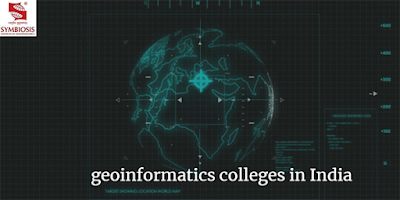Exploring Beyond Maps: Dive into Geospatial Technology Programs
Have you ever wondered how maps are created and updated? How satellite images are captured and analyzed? How location-based services are developed and delivered? If you are fascinated by the world of spatial data and its applications, then you might be interested in pursuing a career in geospatial technology.
Geospatial technology is a broad term that encompasses various tools and techniques that collect, store, process, visualize, and communicate spatial information. Some of the most common geospatial technologies are:
Geographic Information Systems (GIS): GIS is a software system that allows users to create, edit, manipulate, analyze, and display spatial data in the form of maps, charts, tables, and graphs. GIS can be used for a wide range of purposes, such as urban planning, environmental management, disaster response, business intelligence, and more.
Remote Sensing: Remote sensing is the science of acquiring information about the Earth’s surface and atmosphere from a distance, using sensors mounted on satellites, aircrafts, drones, or balloons. Remote sensing can provide valuable insights into various phenomena, such as land cover, vegetation, climate change, natural hazards, and more.
Global Positioning System (GPS): GPS is a satellite-based navigation system that provides accurate location and time information to users anywhere on the planet. GPS can be used for various applications, such as navigation, tracking, surveying, mapping, and more.
Geospatial Data Science: Geospatial data science is the application of advanced statistical and computational methods to extract meaningful insights from large and complex geospatial datasets. Geospatial data science can help solve challenging problems in various domains, such as health, agriculture, transportation, security, and more.
If you want to learn more about these exciting geospatial technologies and how they can transform the world we live in, then you should consider enrolling in one of the many geospatial technology programs offered by various institutions across the world.
One of the best places to pursue a geospatial technology program is India. India has a rich history and tradition of excellence in geospatial research and innovation. India is also home to some of the leading geoinformatics colleges in India that offer high-quality education and training in geospatial technology.
One of the most popular questions among aspiring geospatial professionals is: what is geoinformatics course? Geoinformatics is a multidisciplinary field that integrates geospatial technology with information technology to create innovative solutions for spatial problems. A geoinformatics course typically covers topics such as:
- Fundamentals of geospatial technology
- Spatial data acquisition and management
- Spatial data analysis and modeling
- Spatial data visualization and communication
- Geospatial applications and case studies
A geoinformatics course can prepare you for a rewarding career in various sectors, such as government, industry, academia, or non-governmental organizations. You can also pursue further studies or research in geoinformatics or related fields.
If you are interested in pursuing a geoinformatics course in India, then you should know about the M.Sc geoinformatics eligibility criteria. The M.Sc geoinformatics eligibility criteria vary from institution to institution, but generally include:
- A bachelor’s degree in science, engineering, or related fields from a recognized university
- A minimum aggregate score of 50% or equivalent in the qualifying examination
- A valid score in an entrance test conducted by the respective institution or a national level test such as GATE or NET
One of the best geoinformatics colleges in India that offers an M.Sc geoinformatics program is the Symbiosis Institute of Geoinformatics (SIG). SIG is a premier institute that provides state-of-the-art facilities and faculty for imparting quality education and training in geoinformatics. SIG also offers various short-term courses and workshops on geospatial technology for working professionals and students.
If you want to explore the realm of geospatial technology and become a part of the growing geospatial community in India and abroad, then you should consider applying to SIG or any other reputable geoinformatics college in India. You will not only gain valuable knowledge and skills in geospatial technology but also open up new horizons of opportunities and possibilities for your future.

Comments
Post a Comment